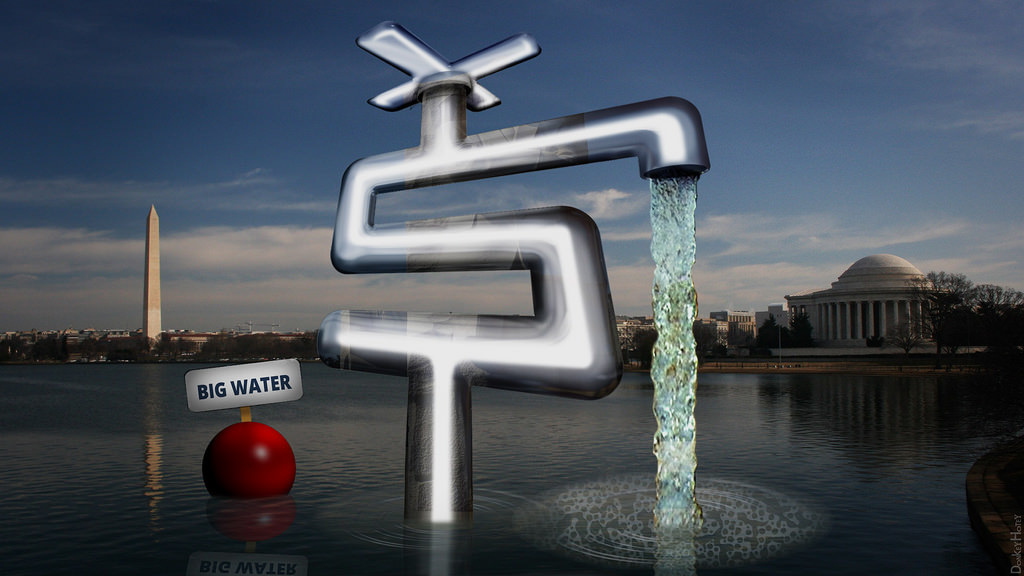| I have met a lot of politicians in my career. If they have one thing in common, it is this: They say they hate begging people to donate money to their campaigns. I also have met a lot of voters. If they have one thing in common, it is that they hate the (at least perceived) influence big donors have on politicians; just as they hate how much money it takes to get elected. |
| | We all seem to hate the connection of money and politics, which is like hating the connection between fish and water. Try winning an election without money and you’ll end up flopping and gasping along the secret shores of oblivion. But no matter how you try to get some of that legal tender water, you are bound to get into trouble. Utah’s governor’s race has run headlong into this contradiction already. GOP challenger Jonathan Johnson has received $400,000 from one source, Overstock.com founder and former CEO Patrick Byrne. Johnson is the board chairman of Overstock. His other contributions totaled about $47,000, as of last week. The incumbent, Gov. Gary Herbert, has raised a lot of money ($602,000 in the past month alone, according to a Deseret News report) through smaller donations, although more than a dozen were for $25,000. He drew criticism for telling a group of lobbyists he was “available Jones,” an obscure reference to a comic strip character in the mid-20th century. In a meeting with the combined editorial boards of the Deseret News and KSL, the governor regretted those remarks, saying he didn’t fully understand the reference and should have spent more time in his youth reading Lil’ Abner. Available Jones was a character who would be anyone’s friend, for a price. On the Democratic side, candidate Mike Weinholtz has loaned his campaign $1 million of his own money. If you’re keeping score at home, this pretty much runs the gamut of possibilities. Voters who believe politicians are influenced by money are left with a decision. Is it better to elect someone who collects donations, some of them large, from a variety of sources, or someone who is mainly financed by one source, or someone who is wealthy enough to finance his own campaign? The question, of course, assumes people are keeping score at home, which is unclear. The problem is not unique to Utah. Donald Trump spent much of his early campaign touting his ability to pay his own way, saying it gave him independence. But being financially independent is not necessarily the same as being beholden to the needs of average voters. Trump, meanwhile, has since begun accepting donations. According to the National Conference of State Legislatures, Utah is one of about a dozen states that do not limit campaign contributions from individuals. It is one of 18 that imposes no limits on political party contributions, one of six that imposes no limits on corporate contributions, and one of 13 that allows political action committees to contribute what they want. Utah’s laissez faire attitude toward contributions is based on the premise that voters can know, by studying contribution reports, who is getting money from whom. I have my doubts as to whether voters pay that much attention. Some states impose limits on contributions, but each limit comes with consequences. Generally, newcomers to the political game need lots of money to get people to recognize their names. The risk is that government will be left to the very wealthy or entrenched incumbents. Some have called for using tax money to finance campaigns. That list includes Teddy Roosevelt, who called for this in his 1907 state of the union address. This is not a new issue. To put all this in perspective, remember two things. The first is that it’s nearly impossible to stop the flow of money into campaigns. Like water, you can impede it, but it will find other, less noticeable ways of getting to its intended target. The other is that the common notion one can buy an election is generally false. Exhibit A this year is Jeb Bush, whose super PAC raised more money last year than Barack Obama did in all of 2012. “Is there a better way to do it?” Gov. Herbert asked the editorial board. “Probably, and we ought to have those kinds of discussions.” But that won’t happen before November. Until then, you get to decide how important all of this is. |


 RSS Feed
RSS Feed

